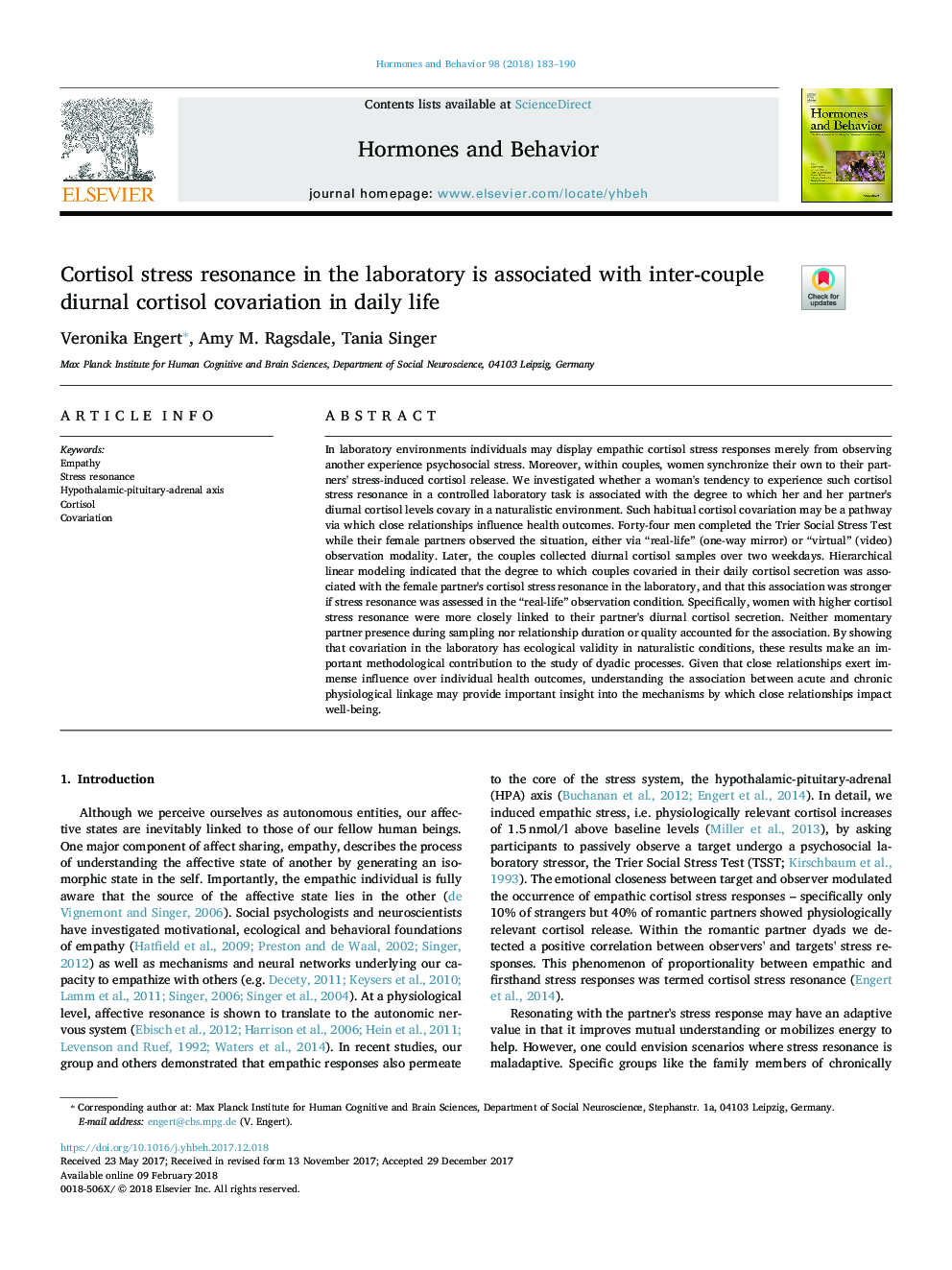| Article ID | Journal | Published Year | Pages | File Type |
|---|---|---|---|---|
| 6794124 | Hormones and Behavior | 2018 | 8 Pages |
Abstract
In laboratory environments individuals may display empathic cortisol stress responses merely from observing another experience psychosocial stress. Moreover, within couples, women synchronize their own to their partners' stress-induced cortisol release. We investigated whether a woman's tendency to experience such cortisol stress resonance in a controlled laboratory task is associated with the degree to which her and her partner's diurnal cortisol levels covary in a naturalistic environment. Such habitual cortisol covariation may be a pathway via which close relationships influence health outcomes. Forty-four men completed the Trier Social Stress Test while their female partners observed the situation, either via “real-life” (one-way mirror) or “virtual” (video) observation modality. Later, the couples collected diurnal cortisol samples over two weekdays. Hierarchical linear modeling indicated that the degree to which couples covaried in their daily cortisol secretion was associated with the female partner's cortisol stress resonance in the laboratory, and that this association was stronger if stress resonance was assessed in the “real-life” observation condition. Specifically, women with higher cortisol stress resonance were more closely linked to their partner's diurnal cortisol secretion. Neither momentary partner presence during sampling nor relationship duration or quality accounted for the association. By showing that covariation in the laboratory has ecological validity in naturalistic conditions, these results make an important methodological contribution to the study of dyadic processes. Given that close relationships exert immense influence over individual health outcomes, understanding the association between acute and chronic physiological linkage may provide important insight into the mechanisms by which close relationships impact well-being.
Related Topics
Life Sciences
Biochemistry, Genetics and Molecular Biology
Endocrinology
Authors
Veronika Engert, Amy M. Ragsdale, Tania Singer,
